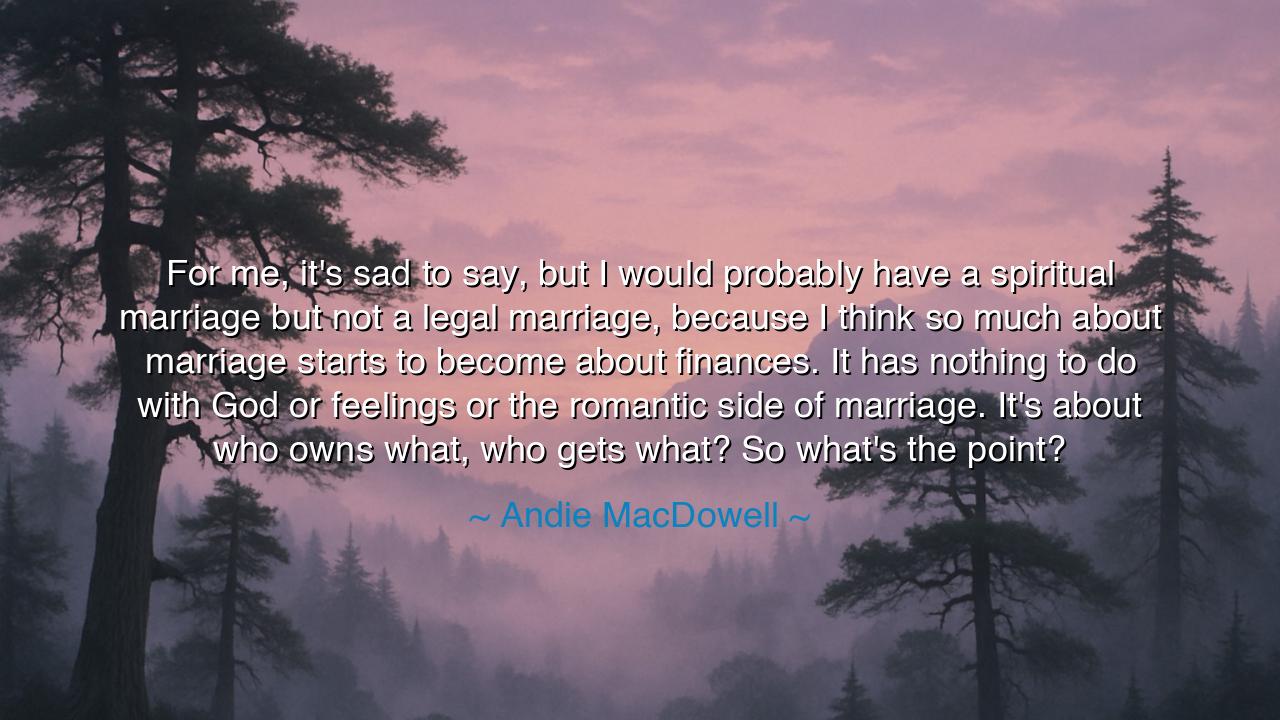
For me, it's sad to say, but I would probably have a spiritual
For me, it's sad to say, but I would probably have a spiritual marriage but not a legal marriage, because I think so much about marriage starts to become about finances. It has nothing to do with God or feelings or the romantic side of marriage. It's about who owns what, who gets what? So what's the point?






Hear the tender yet sorrowful words of Andie MacDowell: “For me, it’s sad to say, but I would probably have a spiritual marriage but not a legal marriage, because I think so much about marriage starts to become about finances. It has nothing to do with God or feelings or the romantic side of marriage. It’s about who owns what, who gets what? So what’s the point?” In this confession lies a lament, a recognition that what is meant to be sacred and eternal has too often been weighed down by the cold hands of law, money, and possession.
The meaning of this quote is rooted in the ancient distinction between the covenant of the heart and the contract of the world. Spiritual marriage speaks of union in the eyes of God, in the depths of love, in the joining of souls beyond the reach of judges and lawyers. But legal marriage, as MacDowell describes it, has become entangled with the counting of wealth, the dividing of property, the bargaining of rights. Where once marriage was seen as a holy bond, in her eyes it has been reduced to a ledger, stripping away the mystery of love and turning it into a business transaction.
History bears witness to this tension. In medieval Europe, many unions were blessed in the sight of God long before civil authorities claimed control. The vows were exchanged before a priest or even privately, and the bond was sacred regardless of papers. But as kingdoms grew and wealth multiplied, rulers demanded that






AAdministratorAdministrator
Welcome, honored guests. Please leave a comment, we will respond soon